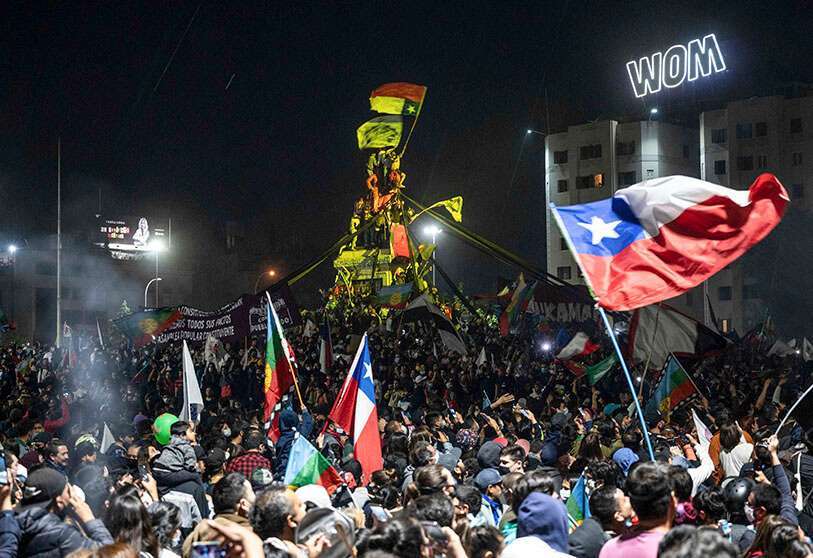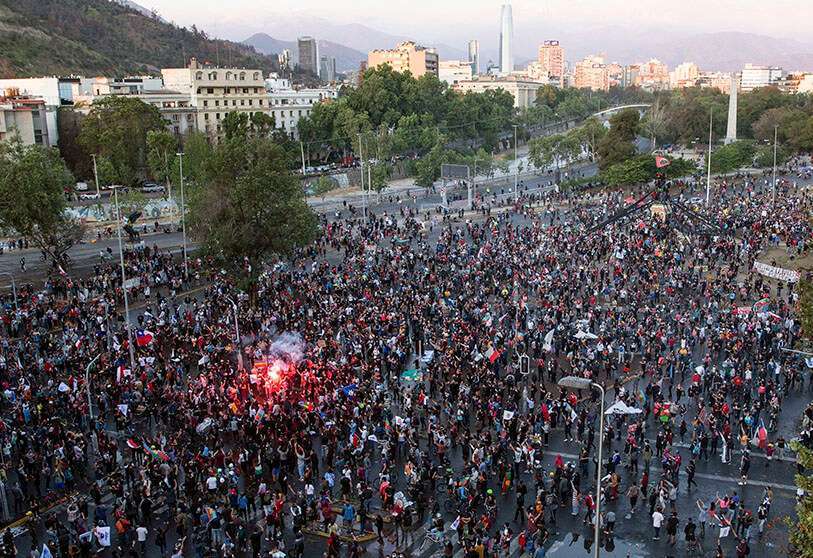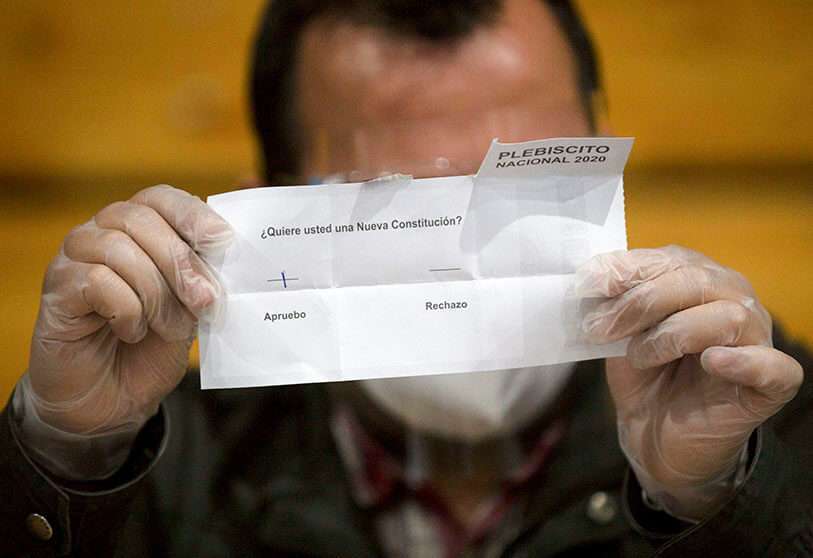Chile buries Pinochet's Constitution in a plebiscite born on the street

Chile decided this Sunday in a historic plebiscite that emerged in response to social protests a year ago to draft a new constitution and bury its current Basic Law, inherited from the dictatorship of Augusto Pinochet (1973-1990) and seen as the seed of the inequalities that led to the revolts. The Chileans voted overwhelmingly in favor of the " Apruebo " (more than 78% of the votes), the option to open a constituent process, and chose to make it entirely of elected citizens, entrusting the drafting of the new Constitution to a constitutional convention (79% of the votes) that will be composed of 155 people elected by popular vote only for this purpose.
The "Rejection" option, which advocated making reforms from new laws but not changing the constitutional framework that, in their opinion, allowed Chile's growth in the last 30 years, obtained almost 22 % of the votes, while the option that the new Fundamental Law be drafted by a mixed convention composed equally of citizens and parliamentarians obtained about 21% of the ballots. More than 14.7 million Chileans were called to the polls in a vote that was held in the midst of the new coronavirus pandemic and full of health restrictions and protocols to prevent possible outbreaks. In spite of this, the participation surpassed 50%, the best percentage since voting ceased to be obligatory in 2012.

The result puts citizens at the center of a unique process that began with the taking of the streets on October 18, 2019 with massive demonstrations - self-convened, without leaders and on the margins of political parties - to demand a more just socioeconomic model. The citizen's rebellion motivated the political class to try to channel the discontent through a plebiscite, in which today the Chileans decided that they will change the Constitution and that they will be the ones who will conform, in an equal way, the convention that will elaborate the new legislative and coexistence framework of the country.
This constitutional election will take place on April 11, 2021 on which half of the members will be women and half men. In addition, it is about to be debated whether there will be seats reserved for indigenous peoples at the convention. "Today citizens and democracy have triumphed, today unity has prevailed over division and peace over violence. And this is a triumph for all Chileans who love democracy, unity and peace. And without a doubt, this triumph of democracy should fill us with joy and hope," said Chilean President Sebastián Piñera about the result of the plebiscite. The president did not publicly pronounce on the meaning of his vote but merely encouraged participation, while asking his cabinet not to participate in public events in support of any of the options.
The left-wing opposition was in favor of change at all times while the four right wing parties in the government coalition were divided, between those who were strongly in favor of constitutional change and those who supported the drafting of a new Basic Text. Heraldo Muñoz, Chile's former foreign minister and president of the opposition Party for Democracy (PPD), said that the result is "very hopeful" and that it is "a mandate from the citizenry to politics, and an opportunity to recover lost confidence". Senator Jacqueline Van Rysselberghe, of the right-wing Independent Democratic Union (UDI), the party that defended the "Rejection," welcomed the fact that the process was developing peacefully and said they will work so that the constitutional change does not start from zero.

Pinochet's Constitution was reformed many times during the last 30 years of democracy, being stripped of its authoritarian and anti-democratic enclaves, but it continued to be the support of the Chilean neoliberal model and prevented major structural reforms as citizens claim in health, education and pensions, among others. The new Magna Carta will be born in democracy and will definitively end one of the last strongholds of the Pinochet era, while the change in the socioeconomic model will depend on the consensus reached by the constituents. The provisions of the new text will have to be approved by two thirds of the constituents, leading to major agreements and forcing the most radical positions to be set aside.

The new text will be legitimated in origin by the election this Sunday and will again be submitted to a referendum, with obligatory vote, once it has been completed, a process that will take almost two years from this day. "This plebiscite is not the end, it is the beginning of a path that we must all walk together to agree on a new constitution for Chile. "Until now, the constitution has divided us. From today we must all work together so that the new constitution is the great framework of unity, stability and future", expressed Piñera. The wide gap between the results of the two options means that there is ample support for the time remaining until the new Basic Law is drafted, in which it remains to be seen what pressure the street will exert, in a context of a pandemic and with 2021 ahead of us in which there will be up to three electoral processes between regional and national elections.

The announcement of this plebiscite on November 15, 2019, agreed upon by almost all political forces with parliamentary representation, aspired to achieve social peace after several weeks of protests, which in addition to peaceful demonstrations also led to events of extreme violence, with fires, looting, destruction of furniture, at least 30 deaths and thousands of wounded. The security forces were also left in the limelight, on which thousands of complaints fell for repression and human rights violations in their actions to contain the protests.










